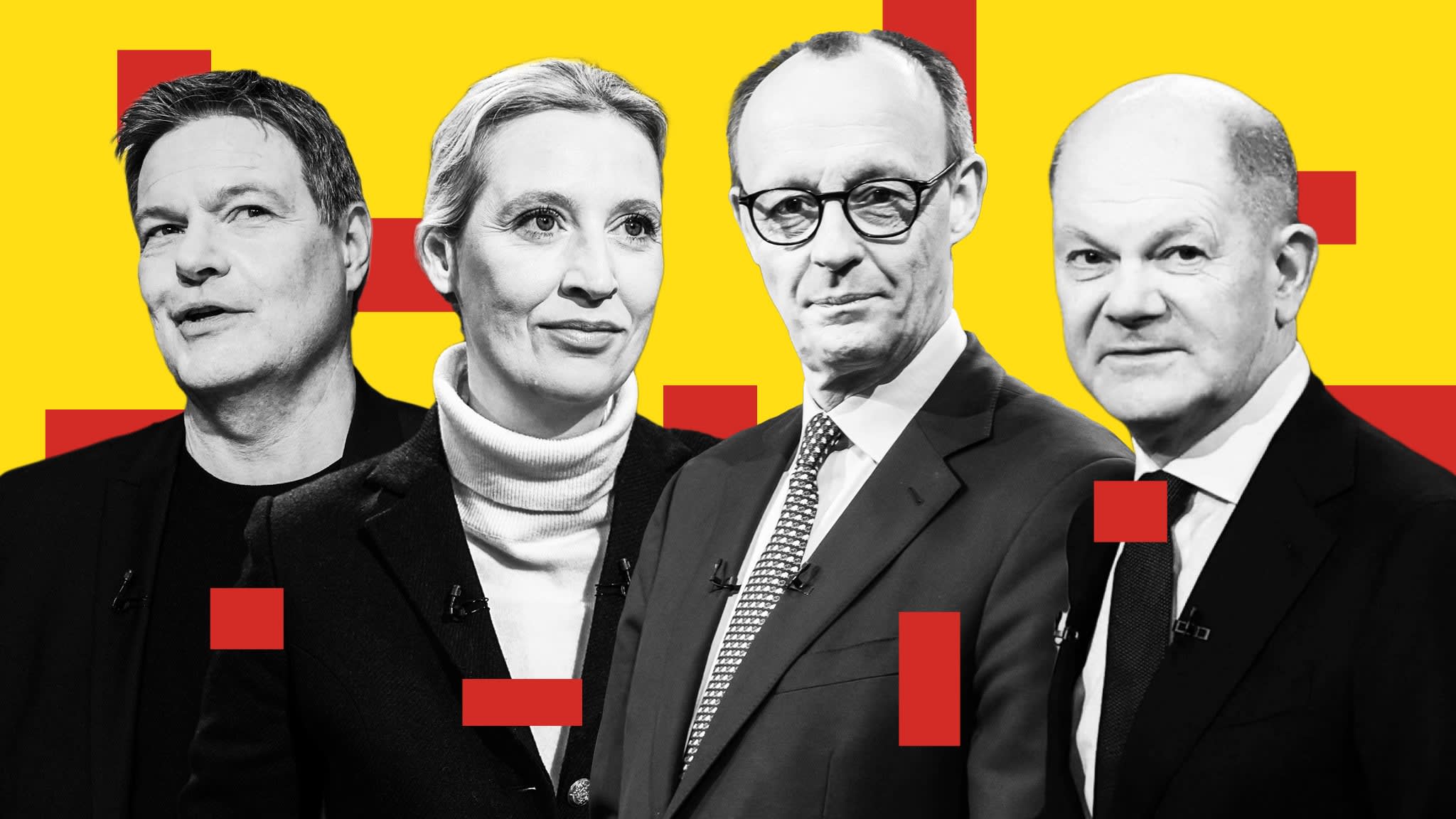Tap for article
Centre-right CDU and CSU parties win election, say exit polls
Germany’s centre-right CDU and CSU parties have won the federal elections with about 28.5 to 29 per cent of the vote according to exit polls, paving the way for CDU leader Friedrich Merz to become chancellor at a time of economic and political upheaval in Europe’s largest democracy.
The far-right Alternative for Germany co-led by Alice Weidel recorded its best result with 19.5 — 20 per cent of the vote on Sunday, according to the preliminary projections by state broadcasters ARD and ZDF. That is double what the anti-immigration party achieved in 2021.
Meanwhile Chancellor Olaf Scholz’s Social Democratic Party won just 16 to 16.5 per cent of the votes.
Inside Perspective here:
The former government colation (SPD, Greens, FDP) did not do a good enough job in the eyes of most germans. Mostly due to sabotage from the FDP who repeatedly blocked proposals and was the main reason for the breaking of the whole coaltition in the first place…
While the artivle claims that the CDU is expected to hold of against the AfD, the situation on the ground is different. Merz has just recently broken tabu by wanting to push an immigration restriction explicitly with votes from the AfD. So fears that the CDU is willing to form a government with them are substantiated by precedent.
This woule give them a majority, but could break the CDU internally. Not all of them like the AfD and Merz is barely human to begin with, especially unpopular with women for good reasons. Even a former chancellor, Angela Merkel, stepped in to explocitly criticise Merz for that move specifically.
Likely it will be CDU + SPD or CDU + SPD + Greens.
All of this is happening while a ban of the AfD is currently underway, but with this result that idea might become compromised.
Summary: Things turned out bad as expected, but as long as a CDU + AfD coalition is avoided, we still have a slim chance to not burn down the whole country.
is there a possibility that FDP falls under electoral threshold this time?
Possible, but it will be close. Will have to wait for the final count to know for sure, same with BSW
what impact would it have on division of seats for other parties?
The only consolation is that the left got nearly 9% and green around 12%, making 21% in total. A shame they won’t make it into the coalition though.
Voter turnout reaches 84%, highest since 1990
Voter turnout reached its highest level since German reunification in 1990, with exit poll data suggesting a turnout of 84 per cent.
That is, wow. I guess it’s true, but ATM it feels too high to be real. Like I also heard about two states having closer to 20% voter turnout. Which surely are outliers (and WTF is wrong with people to not vote with so much at stake), but still 84% is very high.
Sooo I just make a comment on social media stating my opinion asking for other opinions … Alright I found something more useful: https://www.wahlen.info/bundestagswahl/wahlbeteiligung/
It seems conservative Bavaria was pulling the turnout train.
Can we gets some thoughts on this, as an outsider I have no idea what this means for the political impacts this might have. Is this good or bad? I would say that the far-right doubling in votes doesnt seem like a good thing. Is the cdu and csu going to combat those far-right views or promote them?
Outsider as well but it’s definitely bad. Will wait for others to provide more detail.
Here to have a more big picture https://archive.is/2025.02.22-145537/https://www.ft.com/content/6a6d45c1-b259-4976-98f6-8ea8347f832b
Friedrich MerzLeader of the Christian Democrats (CDU) and candidate for chancellor
A former BlackRock Germany chair and amateur pilot, Merz is widely expected to become the next chancellor. He has promised to revitalise Germany’s stagnant economy, but his alignment with the far-right on migration has alienated potential coalition partners.
The main coalition scenarios
The Christian Democratic Union (CDU), led by Friedrich Merz, is widely expected to win the election with around 30 per cent of the vote.
Such a result would be only six percentage points higher than its historically worst performance in 2021. Anything below 30 per cent would be a disappointment for Merz, who has sought to contain the rise of the far-right Alternative for Germany (AfD), which is projected to win one in five votes on Sunday.
Merz has expressed willingness to govern with the Social Democrats (SPD) and the Greens, while ruling out any coalition with the AfD. However, coalition negotiations could become complicated if smaller parties surpass the 5 per cent vote threshold and enter parliament.
A more fragmented Bundestag could make a two-party coalition unfeasible, potentially forcing Merz into a three-party alliance — a scenario reminiscent of the dysfunctional coalition between the SPD, the Greens, and the Free Democrats (FDP).
Germany can only support genocide for so long without going full fash… much like USA.






